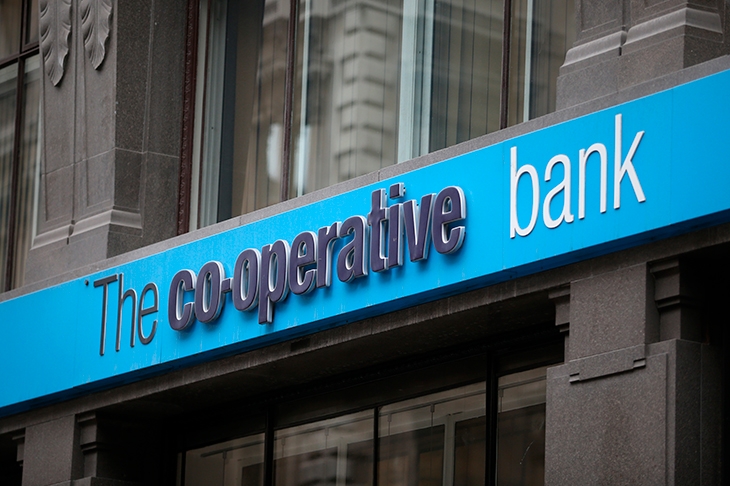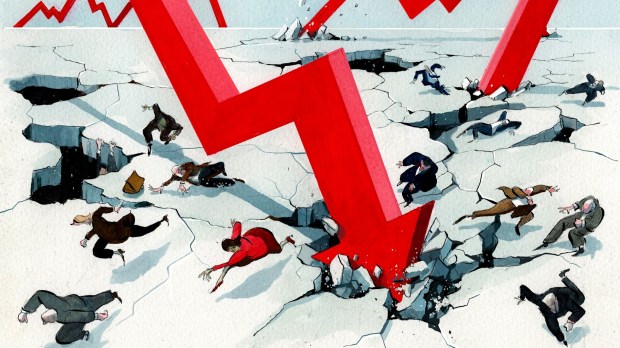We’ve heard a lot this week about infrastructure spending, and how much more will be needed if the UK is to achieve the ‘Green Industrial Revolution’ that the Prime Minister seems to have sketched on the back of a pizza box. We’ve also heard that the Chancellor is looking at ways to squeeze billions for Treasury coffers out of the private pension sector. What we haven’t heard so far is a plan to join those two pieces of the economic jigsaw — by encouraging pension managers to become committed investors in infrastructure projects. There are signs of a small shift in that direction among local authority pension funds, but at a recent World Pensions Council event, one speaker described overall long-term investment of this kind by UK institutions as ‘minuscule’.
Meanwhile, league tables of top global infrastructure investors include many Canadian and Australian pension funds as well as sovereign wealth from the Middle East and China — on which we can’t continue to rely. But our own pensions industry traditionally shuns complex project financing, preferring the liquidity of government bonds — though may prefer them a little less if Rishi Sunak cuts the returns on index-linked gilts by switching them to a lower measure of inflation. If instead he can find ways to incentivise a useful portion of our £6 trillion of private pension wealth towards backing hydrogen power, e-vehicle plug-in networks, small nuclear reactors for every city and an ocean of wind turbines, Downing Street’s green daydream might have a better chance of meeting reality.
Never-ending troubles
The Co-operative Bank has been in trouble for so long that some observers are surprised it still exists as an independent business. It has had six chief executives in nine years and never looked stable since a £1.5 billion ‘black hole’ was found in its balance sheet in 2013 — when its chairman, the ‘crystal Methodist’ minister Paul Flowers, resigned after an exposé involving drugs and rent boys. Soon after that, a group of hedge funds mounted a rescue that diluted the parent Co-operative Group first to a 30 per cent minority and eventually to zero — which you might think good reason for the bank to stop calling itself ‘Co-operative’ and using a logotype that clearly associates it with the Co-op’s corner shops and funeral parlours.
That former link is still a subliminal part of the bank’s ‘ethical’ image, which is really about not lending to arms manufacturers and oil companies that were never likely to ask for its help in the first place. But I’d guess many customers and passers-by still believe the bank’s branches to be part of the member-owned Co-op movement, which has shown its commitment to community support throughout the pandemic — while the bank continued racking up losses and searching for a survival path.
It will move even further from its origins if it falls to a takeover approach from a New York private equity firm called Cerberus Capital, the ‘vulture fund’ that bought Northern Rock’s £13 billion mortgage book in 2013 — and stands accused by the chairman of the parliamentary committee on Fair Business Banking, Kevin Hollinrake MP, of ‘substandard treatment’ of borrowers, not to mention being ‘a parasitic fund that has happily fed on the misery of our citizens’. Surely the Bank of England should block Cerberus and step in — as it probably should have done in 2013 — to steer Co-op Bank’s three million customers into the care of a stronger high-street lender, even if it has to be one that’s less concerned with virtue-signalling?
Hard-nosed operator
I’m sorry to see a ‘closing down sale’ banner on the branch of Edinburgh Woollen Mill that I walk past every day, because I’m sorry for staff who are losing jobs and I hate the way lockdown is accelerating high-street decline. But I can’t summon much sympathy for EWM’s owner Philip Day, who led a buyout of the cut-price clothing retailer from Scottish owners in 2002 and built an empire around it by acquiring struggling chains and brands such as Peacocks, Jaeger and Austin Reed. Accused earlier this year of owing Bangladeshi suppliers £27 million in unpaid bills (which EWM strongly denies) and recently by the British Property Federation of ‘manipulating and abusing’ insolvency rules in its treatment of landlords, EWM is — or was — as hard-nosed as any operator in its sector. And like Sir Philip Green on his Monaco yacht, I don’t suppose the Dubai-based billionaire Day is about to suffer a serious dent in his lifestyle.
Banter and lust
I’d be lying if I said I remember much about Capital City, a drama series set in an investment bank that was first broadcast by ITV in 1989, back when the hi-tech trading floors that had recently arrived in London offered anthropological novelty for the viewing public. But I read that most of its characters came across as likeable and driven by moral conscience — even voting to strike rather than handle a bond issue for a company that was dumping toxic waste in Africa — so it can’t have been very true to life. Much more accurate, I’d say, is Industry, a glossy new BBC-HBO production about young graduates finding their feet in a fictional firm called Pierpoint & Co.
Written by former mergers-and-acquisitions banker Mickey Down and trader Konrad Kay, it captures the daily cocktail of stress, banter, tribal skirmishing and unconcealed lust that I recall from the real Capital City era — though my generation didn’t do so many drugs or get each other’s kit off so often as Industry’s kids do. By keeping the business detail brief but largely incomprehensible, it also portrays the inward-facing nullity of so much of what the anthropologist turned FT writer Gillian Tett memorably called the ‘silo’ life of high finance. Will goodness, truth and social purpose triumph by episode 8, just before Christmas? For once I rather hope not.
Got something to add? Join the discussion and comment below.
Get 10 issues for just $10
Subscribe to The Spectator Australia today for the next 10 magazine issues, plus full online access, for just $10.
You might disagree with half of it, but you’ll enjoy reading all of it. Try your first month for free, then just $2 a week for the remainder of your first year.















Comments
Don't miss out
Join the conversation with other Spectator Australia readers. Subscribe to leave a comment.
SUBSCRIBEAlready a subscriber? Log in